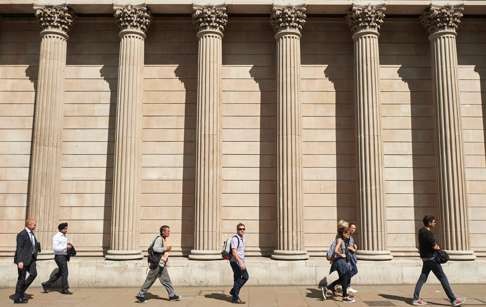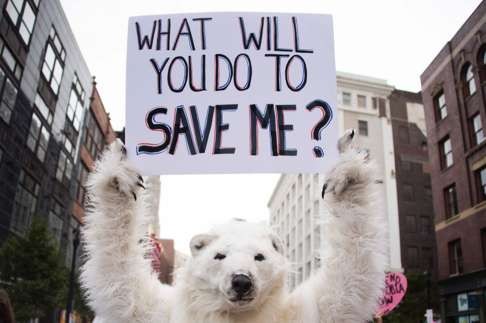
We are entering the age of dealing with unknown unknowns – as Brexit and Turkey’s failed coup show
Andrew Sheng says disruptive events like Brexit and the attempted coup in Turkey – as well as climate change and new technology – show that the world has moved from an age of risk to an age of uncertainty

The Age of Uncertainty is a book and BBC series by the late Harvard economist John Kenneth Galbraith, produced in 1977, about how we have moved from the age of certainty in 19th-century economic thought to a present that is full of unknowns. I remember asking my economics professor what he thought of Galbraith, one of the most widely read economists of his time. His answer was that Galbraith’s version of economics was too eclectic and wide-ranging. It was not where mainstream economics – pumped up by the promise of quantitative models and mathematics – was going.
Forty years later, it is likely that Galbraith’s vision of the future was more prescient than that of Milton Friedman, the leading light of free-market economics, which promised more than it could deliver. The utopia of free markets, where rational man would deliver the most efficient public good from individual greed, turned out to be exactly the opposite – great social inequities exist alongside grave uncertainties.
The economics profession was always slightly confused over the difference between risk and uncertainty, as if the former included the latter. The economist Frank Knight clarified the difference as follows – risk is measurable and uncertainty is not. Quantitative economists then defined risk as measurable volatility – the amount that a variable, like price, fluctuates around its historical average. The bell-shaped statistical curve that forms the conventional risk model used widely in economics assumes that there is a 95 per cent probability that fluctuations of price will be two standard deviations from the average or mean. For the non-technically minded, a standard deviation is a measure of the variance or dispersion around the mean. So if the standard deviation is, say, 5 per cent, we would not expect more than a 10 per cent price fluctuation 95 per cent of the time.

Events like Brexit shock us because the event gives rise to huge uncertainties over the future. Most experts did not expect Brexit; the variance was more than the normal. It was a reversal of a British decision to join the European Union, a five-or-more standard deviation event. The conventional risk management models simply did not factor in a reversal of decision.
Experts are those who can convincingly explain why they are wrong, but they may be no better in predicting the future than monkeys throwing darts
In other words, we have moved from an age of risk to an age of uncertainty, where we are dealing with unknown unknowns.
There are different categories of unknowns – known unknowns (that which we know we do not know), calculable unknowns (that which we can estimate), and the last – we simply do not know.
Big data is the fashionable phrase for churning lots of data to discover correlations. Big databases are needed to access that information. Most individuals like you and I would have to use our instincts or rely on experts. Brexit told us that many experts were simply wrong. Experts are those who can convincingly explain why they are wrong, but they may be no better in predicting the future than monkeys throwing darts.
There are five current factors that add up to considerable uncertainty – geopolitics, climate change, technology, unconventional monetary policy and creative destruction.
First, Brexit and the attempted Turkish coup are geopolitical events that will change the course of history. In its latest forecasts on the world economy, the International Monetary Fund has called Brexit “the spanner in the works” that may slow growth further. But Brexit was a decision made because the British are more concerned about immigration than nickels and dimes from Brussels. This is connected to the second factor, climate change.

We are already feeling the impact of warmer weather, unpredictable storms and droughts. Historically, dynastic collapses have been associated with major climate change, such as the droughts that caused the disappearance of the Angkor and Mayan cultures. Iraq, Afghanistan, Syria, Sudan and others are failing states because they are water-stressed. If North Africa and the Middle East continue to face major water stress and social upheaval, expect more than 1 million refugees to flood northwards to Europe where it is cooler and welfare benefits are better.
Historically, dynastic collapses have been associated with major climate change
The third disruptor is technology, which brings wondrous new inventions like bio-technology and robotics, but also concerns such as loss of jobs and genetic accidents.
Fourth, unconventional monetary policy has already breached the theoretical boundaries of negative interest rates, where no one, least of all the central bankers, fully appreciates how negative interest rates are destroying the business model of finance.
Last but not least, the Austrian economist Joseph Schumpeter lauded innovation and entrepreneurship as the engine of capitalism through what he called creative destruction. Change always brings about losses to the status quo. Technology disrupts traditional industries, and disappearing industries will create job losses, large non-performing loans and assets that will have no value.
Change is not always a zero-sum game, of course. It is good when it is a win-win game; but with a lack of leadership, it can easily deteriorate into a lose-lose game. That is the scary side of unknown unknowns.
Andrew Sheng writes on global issues from an Asian perspective